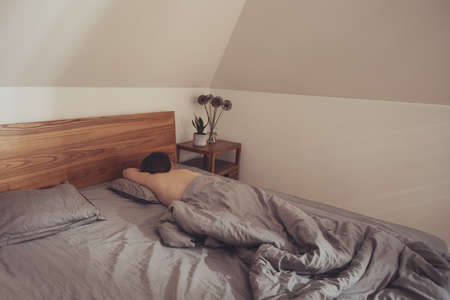Understanding Feng Shui Principles for the Bedroom
Feng Shui, an ancient Chinese practice centred on harmonising individuals with their environment, can be thoughtfully adapted to create a peaceful bedroom sanctuary right here in the UK. At its core, Feng Shui is about achieving balance, ensuring the smooth flow of energy—known as “chi”—and cultivating tranquillity within our living spaces. In British homes, which often feature unique architectural characteristics such as bay windows, fireplaces, and alcoves, these principles require a practical and considered approach.
Balance in Feng Shui refers not only to symmetry in furniture placement but also to the harmony between natural elements—wood, earth, metal, water, and fire. For British bedrooms, this might mean blending traditional materials like oak or pine with soft textiles and calming colours reminiscent of the British countryside. Energy flow is equally essential: cluttered or cramped layouts can stagnate chi, so it’s important to keep pathways clear and maintain an airy atmosphere. With Britain’s famously changeable weather and limited daylight during winter months, maximising natural light and introducing reflective surfaces can help keep energy moving freely throughout the room.
Finally, creating tranquillity means curating a restful ambience that supports restorative sleep. This could involve integrating soothing textures and gentle lighting, as well as minimising electronic distractions—elements that are particularly relevant in modern UK homes where space may be at a premium. By understanding these foundational concepts of Feng Shui and interpreting them through a British lens, you can begin to transform your bedroom into an ultimate retreat for restful sleep.
Choosing the Right Location and Bed Placement
When crafting the ultimate Feng Shui bedroom for restful sleep in the UK, the room’s location within your home and how you position your bed play a pivotal role. British homes, whether they’re classic Victorian terraces or modern flats, often come with quirks that can make optimal placement a challenge—but not an impossibility. According to Feng Shui principles, both the location of your bedroom and the orientation of your bed directly influence the quality of your rest and overall wellbeing.
The Importance of Bed Orientation
In Feng Shui, your bed should ideally be placed in what’s known as the “command position.” This means you can see the door from where you sleep, without being directly in line with it. In UK homes, this may require some creativity due to room layouts and window placements. If possible, avoid placing the bed under a window or sharing a wall with a bathroom, as these positions are believed to disrupt energy flow.
Ideal Room Locations within British Homes
Bedrooms situated towards the rear of the house tend to be quieter and are generally preferred for restful sleep in the UK context. Here is a quick reference table to help guide your choice:
| Location within Home | Feng Shui Benefit | Typical UK Home Notes |
|---|---|---|
| Rear (Back) Bedroom | Peaceful energy, away from street noise | Best for restful sleep; often overlooks gardens |
| Front Bedroom | More active energy due to road proximity | May require extra soundproofing or calming colours |
| Attic Bedroom | Potentially light and airy, but sloped ceilings can affect comfort | Add soft furnishings and ensure good ventilation |
| Ground Floor Bedroom | Easily accessible, may feel less private or secure | Add security features and use grounding décor elements |
Practical Layout Adjustments for Optimal Rest
If your ideal placement isn’t possible due to radiators, wardrobes, or chimney breasts (common in British bedrooms), consider these adjustments:
- Use a solid headboard: This provides support even if your bed is near a window or awkward wall.
- Avoid aligning the bed with the door: Use rugs or furniture to subtly redirect energy flow.
- Create balance: Place matching bedside tables and lamps on each side of the bed for harmony.
- Curtains or blinds: Essential for privacy and blocking early morning light common in northern latitudes.
The thoughtful selection of your bedroom location and mindful bed placement—tailored for typical British homes—lays the foundation for restorative sleep according to Feng Shui wisdom. Taking these steps will help foster an environment where rest truly comes naturally.

3. Selecting Calming Colours and Decor with a UK Twist
When crafting a restful Feng Shui bedroom in the UK, choosing the right colour palette is essential for setting a tranquil atmosphere. Traditional Feng Shui encourages the use of soft, muted tones—think gentle blues, soothing greens, warm creams, and pale greys—which naturally promote relaxation and balance. To give these principles a distinctly British flavour, consider incorporating hues inspired by the local landscape: the calming sage greens of the Cotswolds, misty coastal blues reminiscent of Cornwall’s shores, or even the muted heather purples found on Scottish moors.
Integrating UK design sensibilities can be achieved through both colour choices and decor elements. For example, opting for classic Farrow & Ball paints or similar heritage brands brings authenticity and subtlety to your walls. When it comes to decor, choose items that evoke a sense of British homeliness—such as woollen throws from Yorkshire mills, hand-crafted ceramics from local artisans, or understated linen bedding in natural shades. These pieces not only enhance harmony but also ground your space in its unique setting.
To maintain good Feng Shui flow, avoid clutter and select furniture with clean lines and rounded edges. Embrace simplicity with thoughtfully chosen accessories: perhaps a small framed print of the Lake District or an antique wooden bedside table found at a local market. By blending calming colours with distinctly British decor touches, you create a bedroom that feels both harmonious and unmistakably rooted in the UK—a true sanctuary for restful sleep.
4. Optimising Natural Light and Ventilation
Creating a harmonious Feng Shui bedroom in the UK relies heavily on harnessing natural light and achieving effective ventilation, both of which are crucial for restful sleep and balanced energy. However, with the unique challenges posed by British weather and traditional window styles, it’s important to balance daylight, airflow, and warmth.
Daylight Strategies for Common British Window Styles
Maximising daylight starts with understanding your room’s windows. Many UK homes feature sash, casement, or bay windows—each offering different opportunities for light optimisation. Consider the following strategies:
| Window Style | Daylight Maximisation Tips |
|---|---|
| Sash Windows | Keep upper and lower sashes clean; use light, sheer curtains to diffuse sunlight without blocking it; consider opening both sashes slightly to encourage air circulation while maintaining privacy. |
| Casement Windows | Open fully to capture maximum daylight; position mirrors opposite windows to reflect light deeper into the room; avoid heavy drapery that blocks window swing. |
| Bay Windows | Use low-profile blinds or Roman shades; place plants or seating in the bay to make use of enhanced light; keep ledges clear of clutter for an open feel. |
Ensuring Good Airflow Without Losing Warmth
British climates often require balancing fresh air with warmth and comfort. To enhance ventilation while keeping cosy:
- Trickle vents: If fitted, keep these open during the day to maintain a gentle flow of fresh air without significant heat loss.
- Timed airing: Open windows wide for 5–10 minutes in the morning or evening to refresh the air quickly before closing them again to retain warmth.
- Draught excluders: Use these on doors to prevent unwanted cold draughts while still allowing controlled ventilation from windows.
- Bedding placement: Avoid positioning your bed directly under a window or in the path of strong drafts. Instead, locate it where you can benefit from indirect airflow and steady temperature.
The Feng Shui Perspective on Light and Air
A well-lit, well-ventilated bedroom supports positive Qi (energy) flow. In the UK context, optimising your space may mean embracing lighter wall colours, strategically placing mirrors, and using soft fabrics that insulate yet permit movement of air and light. These simple engineering tweaks help ensure your bedroom remains a sanctuary—bright by day, breathable by night, and always warm enough for deep rest.
5. Decluttering and Incorporating Storage Solutions
One of the most common challenges in creating a Feng Shui-inspired bedroom in the UK is managing clutter, especially given the typically compact nature of British homes. A clear, organised space is essential for positive energy flow and restful sleep, so it’s vital to adopt effective decluttering strategies tailored to UK bedrooms.
Assess and Prioritise
Begin by evaluating what you truly need in your bedroom. Keep only those items that serve a purpose or bring you joy. Donate or recycle anything that no longer fits this criteria. A minimalist approach not only aligns with Feng Shui principles but also helps maximise limited space.
Clever Storage Solutions
To maintain a sense of calm and order, opt for storage solutions that are both practical and aesthetically pleasing. Consider the following ideas commonly suited to British homes:
Under-Bed Storage
Make use of the often-underutilised area beneath the bed. Choose low-profile drawers or vacuum storage bags for off-season clothing, extra bedding, or shoes, ensuring everything remains out of sight yet easily accessible.
Built-In Wardrobes
If possible, invest in built-in wardrobes that fit snugly into alcoves or awkward corners—an efficient way to store clothing without eating into valuable floor space.
Multi-Functional Furniture
Look for ottomans or benches with hidden compartments at the end of the bed, or bedside tables with drawers. These provide discreet spaces for personal items while maintaining a tidy appearance.
Shelving with Intention
Wall-mounted shelves can be used sparingly to display meaningful objects or books without overwhelming the room. Keep displays simple and avoid overcrowding to ensure good energy circulation.
Maintaining Positive Energy Flow
Avoid blocking pathways with bulky furniture and keep storage areas well-organised to prevent stagnant energy. Regularly review your belongings to ensure your space remains clutter-free. By thoughtfully integrating these storage solutions, you’ll foster an environment conducive to restful sleep and harmonious living in your UK bedroom.
6. Bringing in Nature: Plants and Materials for the UK Climate
Incorporating elements of nature into your bedroom is a core principle of Feng Shui, as it nurtures harmony and calm. In the UK, where light levels and humidity can vary greatly, choosing houseplants and materials that suit the local climate is both practical and sustainable.
Recommended Houseplants for British Bedrooms
Selecting resilient, air-purifying plants enhances both sleep quality and energy flow. For UK homes, peace lilies are ideal—they thrive in indirect light and help filter toxins from the air. English ivy is another excellent choice; it’s easy to care for, improves indoor air quality, and its trailing vines add a soothing visual element. If you prefer something compact, the snake plant (Sansevieria) copes well with lower light and needs little attention.
Positioning Your Plants for Optimal Feng Shui
Place plants away from the bed but within view to maintain healthy qi (energy) flow without overwhelming the space. Corners are particularly suitable, helping to soften harsh lines and encourage a sense of enclosure and security.
Sustainable Natural Materials Suited to UK Homes
For furniture and décor, favour materials that reflect both sustainability and natural beauty. Oak or ash wood, sourced from responsibly managed British forests, offers durability and warmth. For bedding and curtains, opt for organic cotton or linen, which are breathable and regulate temperature—ideal for the fluctuating UK weather.
The Benefits of Local Sourcing
Sourcing materials locally reduces environmental impact while connecting your home more closely to its surroundings—a subtle but powerful alignment with Feng Shui principles. Incorporate wool throws or rugs from British sheep breeds for extra comfort; wool is not only renewable but also naturally hypoallergenic.
By thoughtfully integrating these plants and materials into your bedroom, you support restful sleep while honouring both Feng Shui wisdom and British environmental values.
7. Blending Tradition with Modern British Living
Integrating Feng Shui principles into a modern British home needn’t feel forced or out of place. In fact, the UK’s appreciation for both heritage and innovation creates an ideal backdrop for this ancient practice to thrive alongside contemporary trends. Begin by acknowledging your personal style and the typical features of British interiors—think bay windows, Victorian fireplaces, or minimalist Scandinavian-inspired décor. The key is to use Feng Shui as a guide rather than a strict rulebook.
Choose natural materials that are readily available and popular in the UK, such as wool throws, oak furniture, or linen bedding. These not only satisfy the Feng Shui emphasis on natural elements but also match the tactile comfort often sought after in British homes. When positioning your bed according to Feng Shui principles (such as facing the door without being directly in line with it), consider the practicalities of room size and shape—common constraints in terraced houses or city flats.
Layer lighting thoughtfully: combine ceiling lights, bedside lamps, and perhaps fairy lights to balance brightness with warmth—a nod to both energy flow and the UK’s love of cosy atmospheres. Mirrors can be used strategically to reflect light and open up smaller spaces, but avoid placing them directly opposite the bed to maintain restful energy.
Don’t be afraid to blend tradition with personality; display cherished books or family heirlooms while keeping clutter at bay. Storage solutions like under-bed drawers or fitted wardrobes can help maintain order without sacrificing character. Finally, embrace seasonal changes by updating soft furnishings or introducing fresh plants—a practical way to keep your bedroom feeling vibrant and connected to nature throughout the year.
By thoughtfully weaving Feng Shui wisdom into the fabric of modern British living, you create a bedroom that is not just restful but truly reflects your lifestyle and values.


